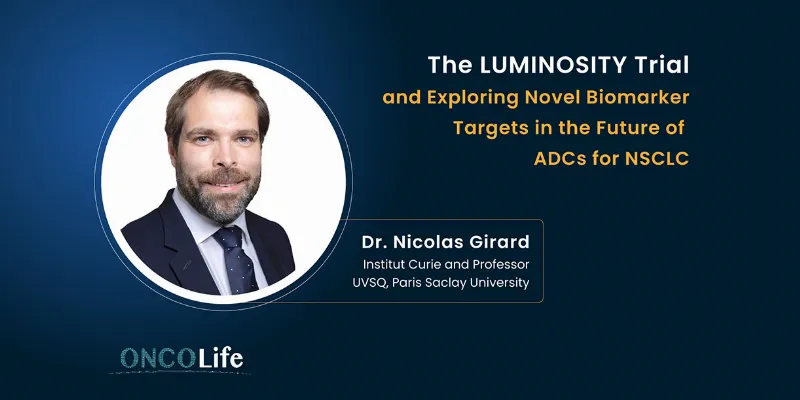The LUMINOSITY Trial And Novel Biomarker Targets in the Future of ADCs for NSCLC

Antibody-drug conjugates (ADCs) represent a significant breakthrough in oncology, offering targeted treatments, especially for lung cancer. In this exclusive interview, we spoke with Professor Nicolas Girard, Head of the Curie-Montsouris Thorax Institute at Institut Curie and Professor of Respiratory Medicine at Versailles Saint Quentin University, to explore the latest advancements in ADC research.
Professor Girard’s work has been at the forefront of this cutting-edge research, particularly in targeting protein biomarkers such as c-Met and SEZ6 in lung cancer treatment. We also discussed the potential future impact of ADCs on oncology and what these developments mean for precision medicine.
Some of the main topics in this interview include:
- How does your research at Institut Curie integrate precision medicine principles, particularly in targeting overexpressed protein biomarkers in solid tumors?
- Could you elaborate on the potential of antibody-drug conjugates (ADCs) like Telisotuzumab Vedotin in overcoming the challenges of treating solid tumors such as lung cancer and colorectal cancer?
- What makes c-Met and SEZ6 particularly compelling targets for ADCs, and how do you anticipate these targets will impact treatment paradigms in lung cancer and other solid tumors?
- What are the key takeaways from the phase 2 LUMINOSITY trial regarding the efficacy and safety of Teliso-V in patients with c-Met overexpressing, EGFR wildtype NSCLC?
- How do you envision the role of ADCs evolving in the broader landscape of oncology treatment? What breakthroughs do you anticipate in the next 5-10 years that could significantly alter patient outcomes?











Comments
No Comments Yet!